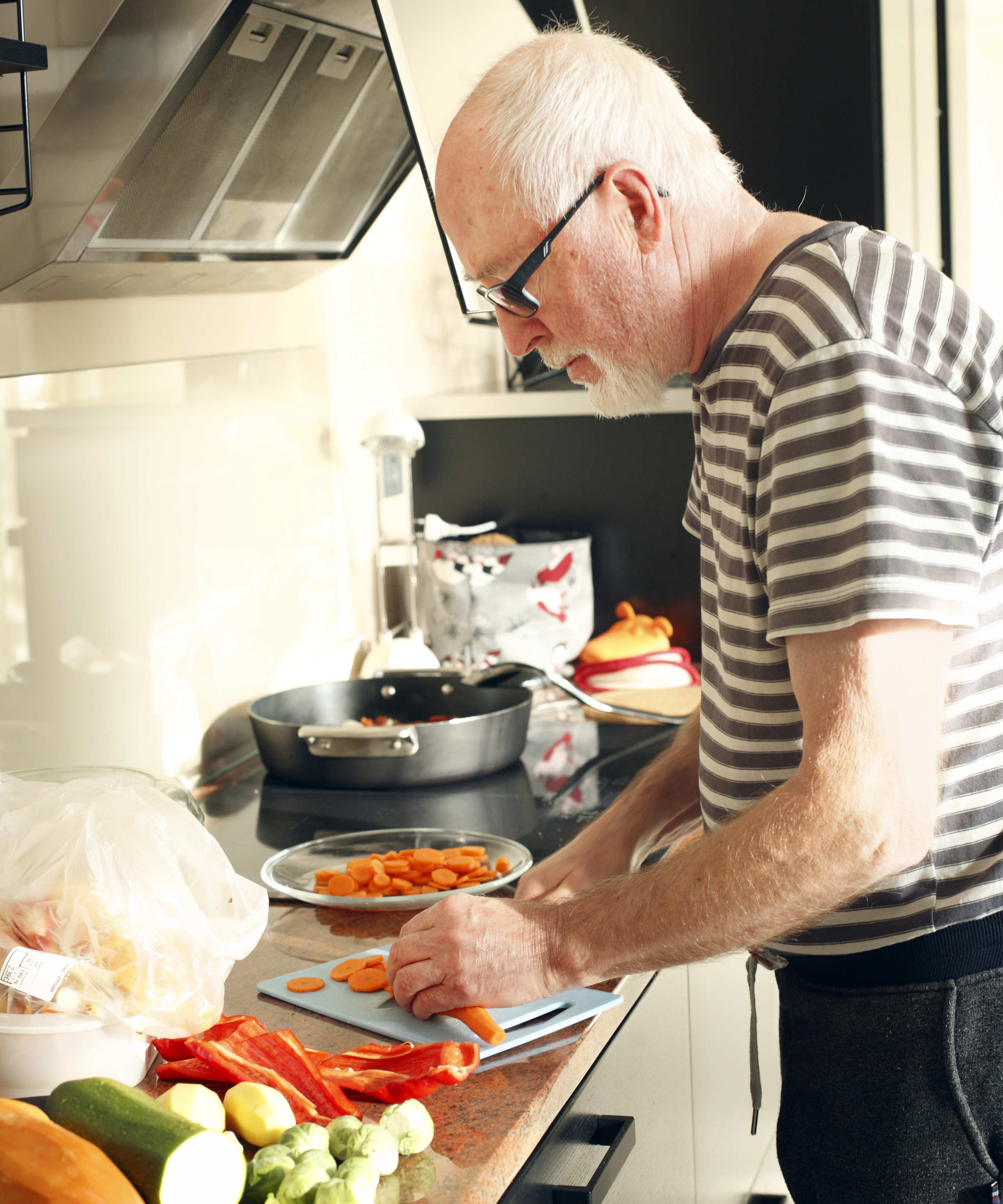Dinner groups help elderly people who have lost their cohabiting partner
When elderly people suddenly have to eat their daily meals alone, they experience a decline in their quality of life. However, dinner groups can have a positive effect on people who have lost a cohabiting partner. In a new study, Aarhus University takes a closer look at how changes in elderly people’s life situation impact their eating habits and their health.

Many elderly people lose their motivation to prepare hot meals when their cohabiting partner passes away. Instead, the dinner table often features rye bread, a bowl of yoghurt or ready-made dishes.
- We can see that some people who lose partner have difficulties eating a varied diet. This can mean that their nutritional needs are not met, says Research Assistant Lise Bundgaard, who is one of the authors behind the report ”Skaber nye livssituationer en ændring i måltidsvaner og et anderledes behov for information om sund kost?” from the Danish Centre for Food and Agriculture (DCA).
The report has been prepared in an interdisciplinary collaboration between the MAPP Centre and the Department of Food Science at Aarhus University. The report is published by the Danish Centre for Food and Agriculture (DCA) and was ordered by the Ministry of Environment and Food of Denmark as part of Aarhus University’s agreement on research-based public sector consultancy.
Refocusing on the meal
The researchers behind the report have conducted a qualitative survey among people over 60 years of age who have lost a cohabiting partner. The study clearly shows that the missing social interaction related to the meal has a negative impact on the elderly people’s quality of life.
- When people lose the social interaction along with their partner, many also lose the enjoyment associated with the meal, says Lise Bundgaard.
A number of people, men in particular, have benefitted from dinner groups. These groups may consist of family and friends, but also of people whom the elderly have sought out themselves or were introduced to after their cohabiting partner passed away. Meals can take place in a flat-share, with neighbours, in the local sports centre, cultural centre or in a dinner club for single men.
- Dinner groups and other forms of social interaction centred around the meal improve people’s quality of life. They strengthen people’s social relations and in some cases their cooking skills as well. That’s why it would be a good idea to try to create more opportunities to form these dinner groups. They might also fulfil a need for social interaction that some of the elderly may tend to replace with media consumption during the meal. Studies show that watching TV and reading newspapers work as distractions and remove the focus from the meal. This in turn affects the appetite. That’s why it could be interesting to start refocusing on the meal, says Lise Bundgaard.
Read the entire DCA report ”Skaber nye livssituationer en ændring i måltidsvaner og et anderledes behov for information om sund kost?” here (in Danish)
For further information, please contact:
Lise Bundgaard, research assistant
MAPP Centre, Aarhus University
Email: lise@mgmt.au.dk
Tel.: +45 87 16 48 12
